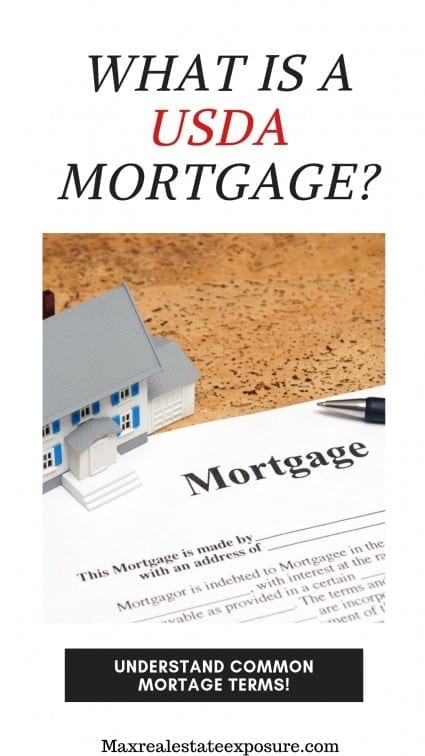Mortgage Terms You Need to Know When Buying or Selling a Home
 Specific “mortgage definitions” are essential to understand whether you are buying or selling a home.
Specific “mortgage definitions” are essential to understand whether you are buying or selling a home.
Mortgage definitions and terminology can be confusing when you’re not using them daily.
The mortgage process can be intimidating, and no wonder since you are trying to qualify for what is likely the most substantial loan you have ever requested.
Fortunately, with sufficient research and using a helpful lender, you can do like so many others have done before you and successfully navigate the path to becoming a homeowner.
Below is a list of thirty-five standard mortgage terms and definitions that will be useful as you proceed with your loan application.
You will see most, if not all, of them before you are done! When you are buying a home, it is paramount to understand the lending process.
It would behoove any buyer to ask a lender questions before making any financial commitment. Buyers and sellers should always have a firm grasp of real estate terms and proper mortgage lingo.
Let’s look comprehensively at the mortgage definitions you should know.
Mortgage Definitions Explained
The following is home loan terminology you should understand when applying for a mortgage.
These mortgage terms will likely be discussed before and during a home purchase.
Amortization
This term describes how your loan is paid off over time, with the interest and principal being paid off at different rates at different times – while your monthly payment remains consistent.
You will typically pay more towards interest and less towards your principal in the first few years of your mortgage, although your monthly payment will remain consistent.
The length of your mortgage will determine how much interest you pay over the life of the loan.
You may want your loan term to be longer or shorter, depending on your circumstances.
Appraisal
The appraisal is what tells the lender what a home is worth. A licensed appraiser must perform it. The appraisal price must be similar to the amount you offer on the house to qualify for a mortgage.
Lenders hire independent appraisers to verify that a property is worth the price a buyer is paying for it. Occasionally there can be an appraisal gap when the appraiser comes in lower than the contract price.
Appraisers are human beings, just like the rest of us. At times they may make a mistake and value a property incorrectly.
Buyers may be in a position where they need to challenge a low real estate appraisal. Disputing an appraisal is not easy but can be done when you have a top-shelf real estate agent in your corner.
Annual Percentage Rate (APR)
The annual percentage rate is a mortgage definition that confuses many people. However, it is mortgage terminology that is essential to understand.
The APR tells you what a loan will cost, including the interest rate for the loan and the cost of securing the loan. APR can be a decent way to compare loan costs between one lending program and another.
Clear to Close
After your loan application and documentation have been reviewed and approved by the underwriter, they will state that your loan is clear to close so that you can get your funding.
Hearing “clear to close will be music to both a buyer’s and seller’s ears, especially when a real estate transaction has hiccups.
Closing Costs

Closing costs are the costs you incur while buying the home beyond your down payment, like mortgage fees, appraisal, etc.
You are expected to cover closing costs and the down payment, so you need to budget accordingly.
In real estate transactions, buyers sometimes ask a seller to cover some closing costs.
This is a seller’s concession or closing cost credit in real estate circles.
Construction Loan
A construction loan is a basic mortgage definition when buying new construction.
When buyers purchase a new home, they will need to get a construction loan if not buying directly from a builder.
An example is buying a plot of land to custom-build your house. Construction loans work differently than traditional mortgages. You should know the nuances.
One of the most significant differences is that the loan will be given out to you in disbursements as the home is built. The lender will inspect certain construction phases, and your funds will be released upon completion.
When you would like to build immediately, construction loans work best. A land loan will work better if you’re not ready to build.
Debt to Income Ratio
Debt to income ratio is another mortgage definition that can confuse laypersons.
Your debt to income ratio is your gross income divided into your monthly consumer debt – used by lenders to determine how much home you can buy. Having too much consumer debt relative to your income will make it more challenging to get an outstanding loan.
Lenders use debt to income ratio (DTI) to determine the likelihood you’ll repay the loan.
Earnest Money
An earnest money deposit is a mortgage definition that all buyers need to understand intimately. The earnest money is good faith from a buyer that they will be earnest in getting to the closing.
These funds act as insurance a buyer will perform under the contract terms. When a buyer breaches their duty under the contract, a seller can keep the earnest money.
Equity
How much of your home you own versus how much the lender holds. The more you pay down your loan, the more equity you have. For example, if your house is worth $400,000 and your loan balance is $200,000, you would have 50% equity in the property.
The longer you own your home, the more equity you will typically accumulate.
Escrows
Most lenders require you to fund an escrow account for your property taxes and home insurance. The lender will use that account to pay these fees.
Another form of “escrow” is the money that a real estate agent or real estate attorney holds in an account as security you will perform under the terms of the purchase contract.
Because there are multiple forms of escrow, the definition can be confusing.
In many states, a five percent down payment is typically put into an escrow account. These monies are accounted for at the time of closing.
Another mortgage term to be familiar with is an escrow holdback. An escrow holdback occurs when some obligation in a real estate contract has not been performed. The holdback ensures that the responsibility will be fulfilled.
For example, if a septic system fails, there may be a holdback to ensure the homeowner completes a new design. Quite often, banks make sellers hold back 1.5 times the replacement estimate.
The cost of septic replacement is highly variable, and lenders want to ensure they are covered. Escrows are one of the more crucial mortgage definitions, as it is your money.
Fannie Mae and Freddie Mac
Fannie Mae and Freddie Mac are government-sponsored agencies providing affordable mortgages to low-income borrowers.
These organizations are involved in over 90 percent of the mortgages in the U.S. Real Estate agents and mortgage brokers always hear this mortgage terminology. Still, buyers and sellers are less likely to.
FHA Mortgage
An FHA loan is a vital mortgage term because it is one of the most popular loan products.
 A mortgage backed by the Federal Housing Association (FHA) – typically offers reasonable rates to borrowers who qualify, like those seeking to buy their first home.
A mortgage backed by the Federal Housing Association (FHA) – typically offers reasonable rates to borrowers who qualify, like those seeking to buy their first home.
One of the advantages of an FHA loan is the ability to put 3.5% down.
A lower down payment attracts many first-time buyers with little money saved.
FHA mortgages are one of the most used first-time home buyer mortgage programs. It is a mortgage term you’ll likely hear whether you are a buyer or seller.
FICO Score
The credit score lenders use determines what kind of mortgage you qualify for. Your credit score has a significant impact on your interest rate.
It makes a ton of sense for buyers to work on increasing their credit score before purchasing a home. Your credit score can significantly impact the loan terms you receive as a borrower.
Your FICO Score is a significant mortgage term when buying a home for the first time.
It should not be confused with different scoring models from companies like Credit Karma.
FICO scores are mortgage terminology lenders will often discuss in-house.
Fixed-Rate
A mortgage has a fixed rate for the life of the loan, meaning your interest rate and principal will never change until you pay off the loan. A fixed-rate loan is one of the most popular loan products.
Most fixed-rate mortgages are written as ten, fifteen, twenty, or thirty-year loan terms.
In recent years, however, far more lenders have written customized loan terms where borrowers can pick more unusual mortgage lengths. Often paying off a mortgage surrounding a specific date, such as retirement, is becoming more common.
Jumbo Loan
A Jumbo Loan is a mortgage that is too big to be purchased securitized or backed by FannieMae or FreddieMac – in most places, the jumbo loan is considered above a mortgage of $726,200.
In some areas of the country, like Washington DC and California, where real estate is costly, the loan limit is $1,089,300.
Once you start seeking a jumbo loan, you enter a different territory than you would seek a more standard loan amount. You may have to find specialized lenders and consult with a Realtor familiar with luxury homes.
Loan Estimate
The loan estimate is another mortgage term that is unfamiliar to most people. It is a vital mortgage definition to know as it involves your loan costs.
A loan estimate is a three-page document covering your loan’s details, including the closing costs, interest rate, and loan amount. Loan estimates are given to borrowers so they have a strong understanding of what their loan will cost.
It allows you to compare costs from various lenders.
The cost of what you will pay with one lender vs. another should be a strong consideration for choosing a lender. Look at all the tips for picking the right financial institution for your mortgage needs.
A loan estimate is one of the more essential mortgage terms to understand.
Loan Originator
Most people don’t have an understanding of what a loan originator does. They are the customer service part of the lender’s operation, which is the individual who facilitates your loan application and takes you through closing.
The loan originator is mortgage terminology you’re unlikely to hear unless you work within a lending institution.
Loan Program
There are different types of loan programs that you can participate in based on your needs and qualifications, such as standard mortgages, low money-down loan programs, and other types of loans.
Most home buyers will benefit from researching all the various loan programs out there. You may qualify for a program that can save money or make it easier to get the home of your dreams.
For example, there are many types of first-time buyer loans worth exploring.
Loan-to-Value Ratio
How much money do you put into a home purchase versus how much are you borrowing from the lender? So for easy math, if you put down ten percent of your own money, you would have a 90-10 loan-to-value ratio.
Mortgage Payoff Statement
A mortgage payoff statement from your lender will calculate your remaining mortgage balance, including any fees. Essentially it tells you how much you need to pay off your mortgage.
A mortgage payoff will be needed when you are selling your house. The document will include the remaining principal owed on the loan and any interest accrued up through the payoff date. Lenders order this document before closing.
Points
 Points are a mortgage term home buyers are likely to hear.
Points are a mortgage term home buyers are likely to hear.
A point is a mortgage term signifying one percent of the loan amount.
For example, if you have a $300,000 loan, one point would be $3000. Borrowers need to understander when they should pay points or not.
Generally, it is better to pay points when you know you’ll be in a home for a more extended period.
When you pay points, your interest rate comes down. If you don’t pay points, the interest rate will be higher.
So when you want the best mortgage interest rate, you’ll pay pints.
You need to calculate the difference in payment to see what the payback period would be.
Pre-Paid
Pre-paids are fees that you pay ahead of time regularly to ensure you can pay necessary bills on time, like your home insurance and property taxes.
You pay money into an escrow account leading up to when these bills are due, so you are guaranteed to have sufficient funds to cover the fees.
Pre-qualified vs. Pre-Approved
Regarding mortgage definitions, pre-approved vs. pre-qualified is essential to know.
One of the more important things for home buyers need to understand is that pre-qualified and pre-approved could be two different mortgage terms depending on the lender.
In many financial institutions, pre-approved for a mortgage and pre-qualified don’t mean the same thing.
Generally speaking, you want to be pre-approved. With pre-approval, the lender verifies your income, employment, and credit score.
In some lending circles, a pre-qualifon just means that you are qualified to borrow a certain amount of money based on what you tell the lender. There is no verification.
To make things more confusing, a percentage of lenders interchange these two mortgage terms as being the same. A significant first-time buyer mistake is not getting financially vetted before looking at homes.
Principal Payment
The amount of your monthly mortgage payment goes toward the principal of your loan. Many borrowers choose to put extra money towards paying down the principal.
Over the life of the loan, paying additional funds can dramatically reduce the interest you pay over the life of the loan.
Private Mortgage Insurance
Private mortgage insurance is a mortgage term you need to understand. You usually have to pay for private mortgage insurance when you put down less than 20% for your home.
Once you reach 20% equity in your home, you’ll want to cancel your PMI. PMI is a shortened mortgage lingo for private mortgage insurance.
PMI is a fee that benefits your lender and nobody else. While it got you the loan initially, there is no benefit beyond that for a homeowner. You will want to terminate this useless fee as soon as possible.
Some borrowelook to avoid paying private mortgage insurance altogether by going with an unconventional loan program.
Processor
The mortgage processor is the individual that handles all the details of your paperwork to get the loan. They double-check to ensure everything is in order before going to the underwriter.
The processor is a mortgage definition that most borrowers won’t hear much about, even though it is essential.
Rate Lock
 Interest rates fluctuate daily. You must get a rate lock from your lender to ensure that you get a specific interest rate over the long term.
Interest rates fluctuate daily. You must get a rate lock from your lender to ensure that you get a specific interest rate over the long term.
When interest rates look like they could be heading higher, it becomes more critical for borrowers to lock their interest rates. If rates seem to be trending downward, some borrowers may want to wait before locking.
Bank Rate has an excellent resource on what you need to know about rate locks.
Reverse Mortgage
A reverse mortgage is a type of mortgage where you access the equity you have in your home to get cash now.
Typically an option is chosen by older homeowners with significant equity in their homes. The minimum age to get a reverse mortgage is sixty-two.
Borrowers need to make sure they choose a reputable lender when getting a reverse mortgage. Many loan sharks are working in the reverse mortgage end of the business.
Knowing how to sell a house with a reverse mortgage is essential.
Title Insurance
Of all the most common mortgage terms, title insurance may be vital to understand thoroughly. You’ll want to know this mortgage definition because it protects your home’s equity.
Title insurance is an insurance policy you need to purchase so that your title company will cover losses resulting from a defect in the title.
There are two types of title insurance. A lender’s policy and an owner’s policy. Lenders always have title insurance. An owner’s policy is optional. As a thirty-seven-year veteran of the real estate industry, I can tell you that it is unquestionably worth the one-time fee.
If you were involved in a title insurance claim without coverage, you could potentially lose tens of thousands, if not more.
Truth in Lending
Another vital mortgage term to know is the truth in lending statements. Truth in Lending is a federal mandate that all lending institutions are required by law to follow.
There are several essential aspects to the Truth In Lending regulations, including proper disclosure of interest rates, how to advertise mortgage loans, and other parts of the lending process.
These banking regulations were put into effect to protect consumers from potential fraud.
VA Mortgage
A VA mortgage is a loan partially backed by the Veteran’s Administration for veterans, service members, and certain spouses of service members. If you qualify, you can get a mortgage with zero down which comes at a reasonable interest rate.
You must meet specific qualifications to get a VA loan, including serving or having served in the military. Take a look at all of the benefits of a VA loan.
Variable Rate
Also known as adjustable-rate mortgages, variable-rate mortgages offer a fixed interest rate for a specific time, then the rate adjusts at a set point in time.
For example, you could get an amortized loan over thirty years but fixed only for the first five years. At year five, the interest rate could adjust up or down depending on where interest rates are then.
Adjustable-rate mortgages tend to benefit those borrowers who don’t plan on staying in a home for a significant amount of time.
Underwriting
What are underwriting and an underwriter? The underwriter is the one who will decide if you get the loan or not by checking your credit, assets, and income.
Underwriters are an essential part of the function of most major lenders. Borrowers must understand this mortgage definition because they determine whether you get the loan.
USDA Mortgage
 Mortgages that the United States Department of Agriculture backs are known as USDA loans. These loans are typically available to buyers in less industrialized towns to encourage home ownership in rural areas.
Mortgages that the United States Department of Agriculture backs are known as USDA loans. These loans are typically available to buyers in less industrialized towns to encourage home ownership in rural areas.
If you qualify, you can pay as little as zero for your down payment.
Short Sale
One of the essential mortgage terms to know is the definition of a short sale. You will undoubtedly encounter this situation if you’re purchasing a house.
A short sale is one where the sale price of the property is less than the amount of the loan owed on the property.
For a short sale to go through, all lien holders must agree to take less than the amount they are owed for the debt.
Short sales become more prevalent in tough economic times, whereby borrowers cannot keep up with their mortgage payments.
Short sales were commonplace in the economic downturn from 2007-2012.
Questions? Ask Your Realtor or Lender
No one expects you to know the mortgage process inside and out – much less the definition of every term you come across.
If you have questions about any term you find while researching mortgages or during the application process, ask your agent or lender. Both are there to help you navigate the lending process efficiently and successfully.
Many borrowers will have the same questions you do. Here are some of the more frequently asked mortgage questions. Don’t be bashful about getting a good handle on the lending process.
Final Thoughts on Mortgage Definitions
You are expected to know many mortgage definitions as a buyer, seller, or real estate agent. Understanding mortgage terminology is essential to your success.
Having at least a general understanding of these standard mortgage terms is vital. The more you know, the better off you will be in your next real estate transaction.
Hopefully, the above mortgage information has been more than helpful. Feel free to reach out if you have any questions about these mortgage terms.
Additional Mortgage Resources Worth a Look
Get more helpful mortgage guidance in these excellent publications.
- Why a 15-year mortgage might not make sense – are you thinking about getting a fifteen-year mortgage vs. a thirty-year? It’s possible this may not be such a good idea. See why it might not make sense for you financially.
- What should a buyer review on a disclosure form – get familiar with what should be reviewed on a seller’s disclosure form.
- Things to know about closing costs as a buyer and seller – see a refresher on who pays what closing costs in a real estate transaction.
- What to know about construction loans – learn what you need to know when you will be getting a mortgage to build a home.
Use these resources from other real estate pros to make the best possible decisions when buying a home.
About the author: Bill Gassett, a nationally recognized leader in his field, provided the above Real Estate information on 35 mortgage definitions to know. Bill can be reached via email at billgassett@remaxexec.com or by phone at 508-625-0191. Bill has helped people move in and out of Metrowest towns for the last 37+ years.
Are you thinking of selling your home? I am passionate about Real Estate and love to share my marketing expertise!
I service Real Estate Sales in the following Metrowest MA towns: Ashland, Bellingham, Douglas, Framingham, Franklin, Grafton, Holliston, Hopkinton, Hopedale, Medway, Mendon, Milford, Millbury, Millville, Natick, Northborough, Northbridge, Shrewsbury, Southborough, Sutton, Wayland, Westborough, Whitinsville, Worcester, Upton, and Uxbridge MA.

